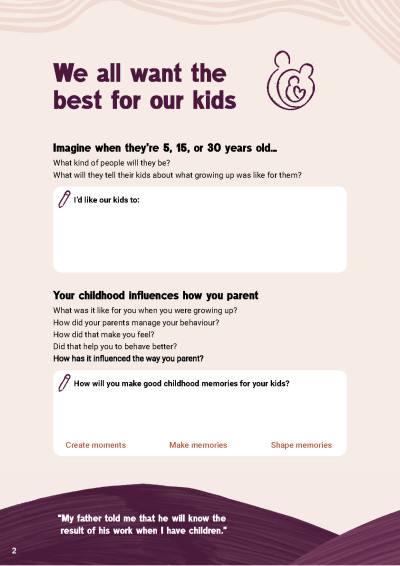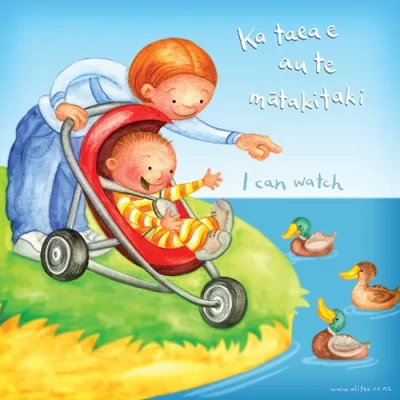
Smokefree world for baby
Having smokefree zones around baby or quitting smoking altogether are positive things whānau can do for baby.
Encouraging the whānau to quit smoking (or at the least to have smokefree spaces for baby) might be a challenge, especially in a family where smoking is very much part of their daily lives.
Quitting smoking
The resource 'Thinking about Parenting' (page 2) might be a good place to start a conversation with whānau. It says, ‘We all want the best for our kids – Imagine them when they’re 5, 15 or 30 years old.’
Ask the whānau:
- Do you ever dream about what your kids will be like when they’re older?
- What would you like their future to be like?
- Did you know that children whose parents smoke are much more likely to smoke than other kids?
- What are the pluses and minuses of being a smoker?
- Have you thought about giving up?
- How did it go?
- What do you think would have helped you?
- What do you think about these quitting tips?:
- Make a plan to quit with other smokers.
- Make a smokefree plan and stick to it.
- Have a smokefree home and car.
- Use the money you save on cigarettes to buy things for you or your baby.
If you usually smoke 12–14 cigarettes a day, quitting will save you around $4,000 in a year.
Creating smokefree zones
If quitting is unlikely, discuss the following ideas for making baby’s world a smokefree zone:
- Make a rule – your home and car are smokefree at all times for everyone.
- Remove all ashtrays from your home.
- Clean out your car ashtray.
- Remove the cigarette lighter from your car.
- Let other people know – put Smokefree/Auahi kore stickers on your windows.
- Ask your whānau to support you by not smoking in your home and car.
- Wear a ‘smoking jacket’ that you leave outside where you smoke.
Having a new baby is a good reason to quit smoking.
If whānau want help to quit, see the resources section for contacts about smokefree programmes.
Helpful resources for whānau
-
Smokefree website
Information from Te Whatu Ora for those who are thinking about quitting, wanting to support someone to quit, or have recently relapsed and need some advice.
-
Quitline 0800 778 778
Need help quitting smoking? Visit the Quitline website or free call 0800 778 778











